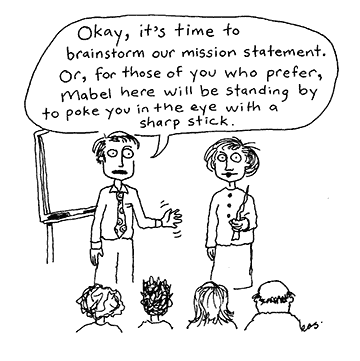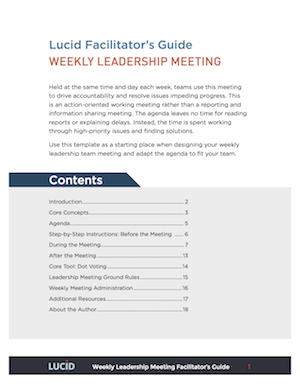5 Reasons to Take Notes in Meetings
 Salary.com conducts a semi-regular survey to discover how employees waste time at work. While social media definitely has an impact, the reported champion time-waster was too many meetings. Again. Responding to surveys didn’t even make the list.
Salary.com conducts a semi-regular survey to discover how employees waste time at work. While social media definitely has an impact, the reported champion time-waster was too many meetings. Again. Responding to surveys didn’t even make the list.
If you want to have meetings that work rather than waste time, you are probably already working to set a clear goal, prepare an agenda, and only invite people who need to be there. But these steps alone won’t cut it, and can backfire if you don’t also capture and send out notes.
You have a clear goal but no one documented the decision, or the next steps? Get ready to have that conversation all over again in yet another meeting. Someone couldn’t make the meeting and there are no notes? Yet another need to schedule more meetings.
Related: How to take notes in meetings
If you have a working meeting, someone needs to take notes. Here are 5 reasons why.
1. Taking meeting notes make it possible to remember what happened
I hear and I forget. I see and I remember. I do and I understand.
Confucius
Let’s start with the obvious – how to take minutes. When your team makes a decision, finds a problem, or decides on a course of action, write it down so everyone will remember it! Even better, switch up your and note taking responsibilities so others can also have a chance to create a memory by writing. And with a written record, you can now forestall any deja vu meetings re-asking the same questions. Result achieved.
2. Meeting minutes can be shared with people who couldn’t attend
For a focused and effective meeting, only include those people required to provide information or make a decision.
This will save everyone else time by excusing them from unnecessary meetings. But, this can also leave people feeling left out of the loop. And sometimes, someone important just can’t attend.
Again with the obvious. Taking notes and making them available afterwards can help keep everyone informed.
Improve Your Skills with Meeting School
3. Taking notes focuses your meetings on results
This is more subtle, and more powerful. When people in a meeting see a key point written down, it becomes more “real”. A problem stated in writing demands attention. A next step documented, assigned an owner and a due date looks an awful lot like something the team expects to have done.
If you want to have real results, noticing when you achieve that result in the discussion and writing it down will send the “results matter” message to your team. Especially when these notes are taken in a way everyone can see.
4. Written notes create strong agreements
Most of us make frequently make agreements that we have little intention of keeping. In a meeting-heavy culture, with people running from one conversation to another, it can be hard to distinguish the “Yeah, sounds great, let’s do coffee” promise made in the hall from the “Yeah, I’ll get someone on my team to pull that together” remark thrown out.
Writing down an agreement makes it stronger. When you work together to decide how a decision or next action should be documented and when it should be done, the resulting commitment is better considered. And by sending notes out afterwards, the increased visibility for that agreement creates social pressure to help it stick.
5. Taking notes helps people feel heard and builds trust
If reasons 3 and 4 are all about holding people accountable (you included, by the way!), this one is about encouraging everyone to contribute and being respectful and professional while doing so.
Remember I said that when you write things down, you send your team a message about what results matter. Depending on when you write something down, you may also be sending a message about WHO on your team matters.
Listening to someone and writing down what they say shows them:
1. Yes, they are heard, and
2. Their contribution counts
If you only document the ideas of people with whom you agree, you’ll quickly see other team members shut down. So don’t do that!
The best meetings result in agreements to which everyone feels they contributed, and you can strengthen that feeling of mutual trust and commitment by including ideas from everyone when you take notes.
But, what if there isn’t anything worth writing down?
Well, then, Salary.com would like to hear from you about that and any other ways your team has found to waste time.



